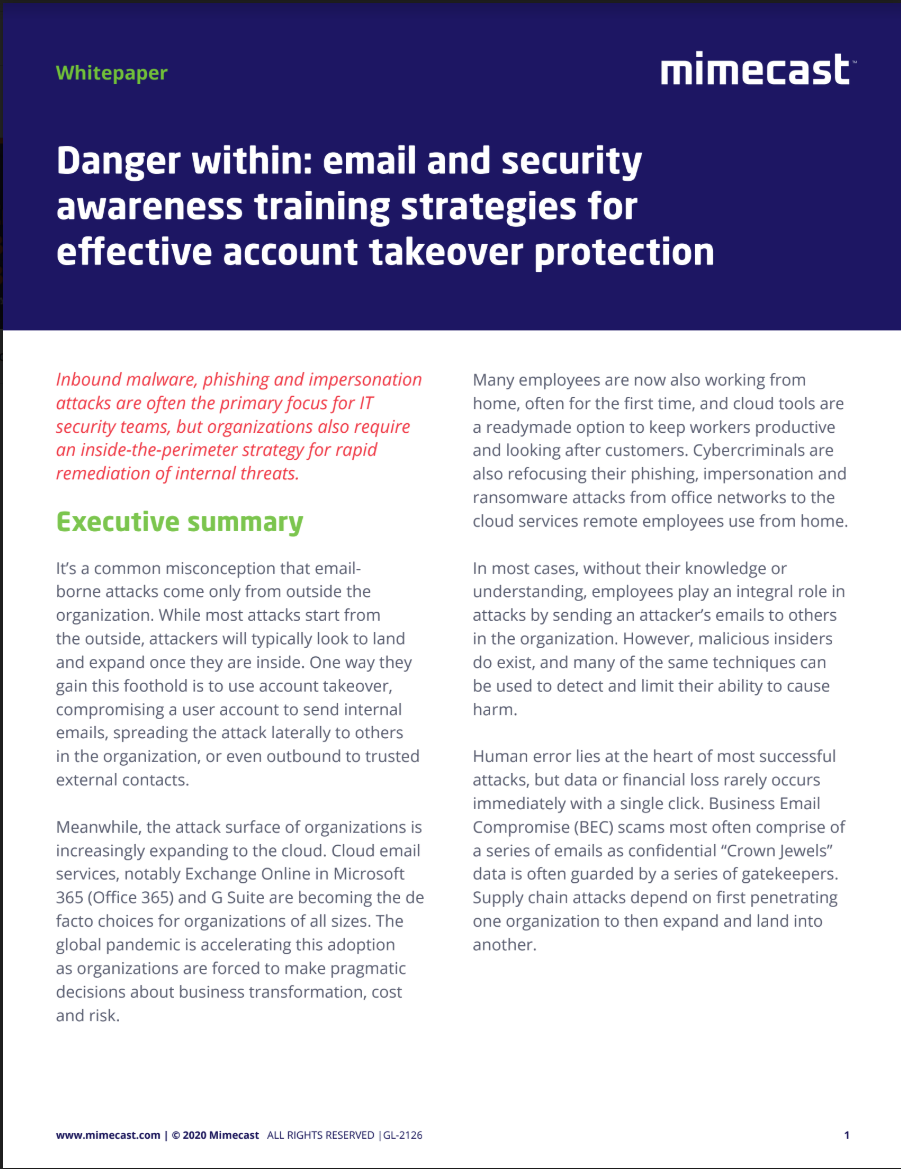29% of UK SMBs cancelled cyber insurance policies in 2021
Even if SMBs are becoming more concerned about cyber attacks, they’re unlikely to be willing to pay even higher premiums to protect themselves


Almost 30% of small and midsize businesses (SMBs) cancelled their cyber insurance policies in 2021 due to cost cutting.
The price of cyber insurance is likely to still be too high for UK SMBs, according to a survey from GlobalData released on Friday. 38% of these businesses think it is unlikely they will be targeted in a cyber attack while 29% cancelled their policies in 2021.
The data and analytics company carried out the survey between August and September last year, where it explored SMB behaviours, purchasing preferences, and attitudes across commercial insurance products. Every company included in the survey had fewer than 250 employees, with 2,001 businesses surveyed in 2021.
GlobalData noted that as risk of attack increases, so will the premiums. It said that given that cutting costs is one of the leading causes of policy cancellation, this will be a significant obstacle.
The firm added that the Ukraine-Russia war has only heightened potential cyber security risks. It pointed to the UK’s National Cyber Security Centre (NCSC) advising all organisations in the country to bolster their cyber security in March 2022, specifically due to the increased risk from the war.
“Even if UK SMBs do become more concerned about their business being targeted by cybercriminals, they are unlikely to be willing to pay even higher premiums to protect themselves,” said Ben Carey-Evans, senior insurance analyst at GlobalData. “It is a difficult product for insurers to price, as unlike other products, they cannot look to limit risk—any SMB could be hit with a cyber attack at any time, and the costs can be significant.”
This is the biggest challenge for NCSC as SMBs are more vulnerable as they don’t take cyber hygiene seriously, said Muttukrishnan Rajarajan, professor of Security Engineering and director of the Institute for Cyber Security at City University of London. This, in turn, makes them the most vulnerable targets for a cyber attack.
Sign up today and you will receive a free copy of our Future Focus 2025 report - the leading guidance on AI, cybersecurity and other IT challenges as per 700+ senior executives
Rajarajan has been teaching cyber security essentials for CEOs and CTOs as part of a programme at the university. He found that most of the individuals from the companies he taught didn’t take cyber security seriously and didn’t know about cyber insurance.
“Interestingly, a few came back to me after a few months of my lessons and said they have been attacked and need help! So I have seen first-hand the impact of these SMBs without any cyber security protection,” he explained.
RELATED RESOURCE

Security awareness training strategies for account takeover protection
Why you need an inside-the-perimeter strategy for internal threats
A good cyber insurance policy should offer training to employees that specifically targets areas of risk within a business, said Steve Arlin, VP of the Americas, UK and APAC at ProLion.
“It can cover loss in income from a data breach and it can cover the cost of investigation work following a GDPR breach as well. While the cost of cyber insurance has certainly risen in recent years to keep pace with developments in cybercrime, it is definitely worthwhile.”
“This is a disturbing statistic as it illustrates that arguably businesses – faced with rising costs – are looking at saving money where they think it won’t matter,” he added. “This is short sighted in the extreme.”
Small businesses were warned in December 2021 to prepare for a potential surge in ransomware attacks in 2022 as cyber criminals turn to campaigns that are less likely to draw coordinated action from law enforcement. A report found that cyber criminals were adapting to increased pressure from police agencies that launched several successful operations to dismantle criminal networks.
Zach Marzouk is a former ITPro, CloudPro, and ChannelPro staff writer, covering topics like security, privacy, worker rights, and startups, primarily in the Asia Pacific and the US regions. Zach joined ITPro in 2017 where he was introduced to the world of B2B technology as a junior staff writer, before he returned to Argentina in 2018, working in communications and as a copywriter. In 2021, he made his way back to ITPro as a staff writer during the pandemic, before joining the world of freelance in 2022.
-
 What is Microsoft Maia?
What is Microsoft Maia?Explainer Microsoft's in-house chip is planned to a core aspect of Microsoft Copilot and future Azure AI offerings
-
 If Satya Nadella wants us to take AI seriously, let’s forget about mass adoption and start with a return on investment for those already using it
If Satya Nadella wants us to take AI seriously, let’s forget about mass adoption and start with a return on investment for those already using itOpinion If Satya Nadella wants us to take AI seriously, let's start with ROI for businesses
-
 US small businesses are fighting off a wave of cyber attacks
US small businesses are fighting off a wave of cyber attacksNews While threats are rising, many small business owners are trying to manage the risk themselves
-
 Small businesses can't get cyber strategies up and running – here's why
Small businesses can't get cyber strategies up and running – here's whyNews SMBs are turning to outside help to shore up security as internal strategies fall flat
-
 UK SMBs are ramping up cybersecurity spending – and it’s about time
UK SMBs are ramping up cybersecurity spending – and it’s about timeNews While small businesses are aiming to bolster their cyber defences, they're wary of AI
-
 Cyber criminals widen the net to target tradespeople
Cyber criminals widen the net to target tradespeopleTradespeople are being warned to take the potential of cyber attacks more seriously after new research showed almost two-thirds had fallen victim to at least one successful attempt in the past.
-
 How the channel can simplify cybersecurity to build trust and agility for SMBs
How the channel can simplify cybersecurity to build trust and agility for SMBsIndustry Insights There's an opportunity for the channel to move from tech resellers to trusted advisors on security and help alleviate the security burden on SMBs
-
 Why ransomware attacks happen to small businesses – and how to stop them
Why ransomware attacks happen to small businesses – and how to stop themIn-depth With a surge in small business ransomware attacks, it's critical to know what makes your organization a target and what defensive measures you can take
-
 How the channel can best support SMB security goals
How the channel can best support SMB security goalsIndustry Insights Channel partners can play a vital role in bridging SMB security gaps
-
 Four measures SMBs can take to avoid common security pitfalls
Four measures SMBs can take to avoid common security pitfallsIn-depth Security can be challenging for SMBs, but it’s possible to make yourself more resilient to reduce the impact of cyber attacks
